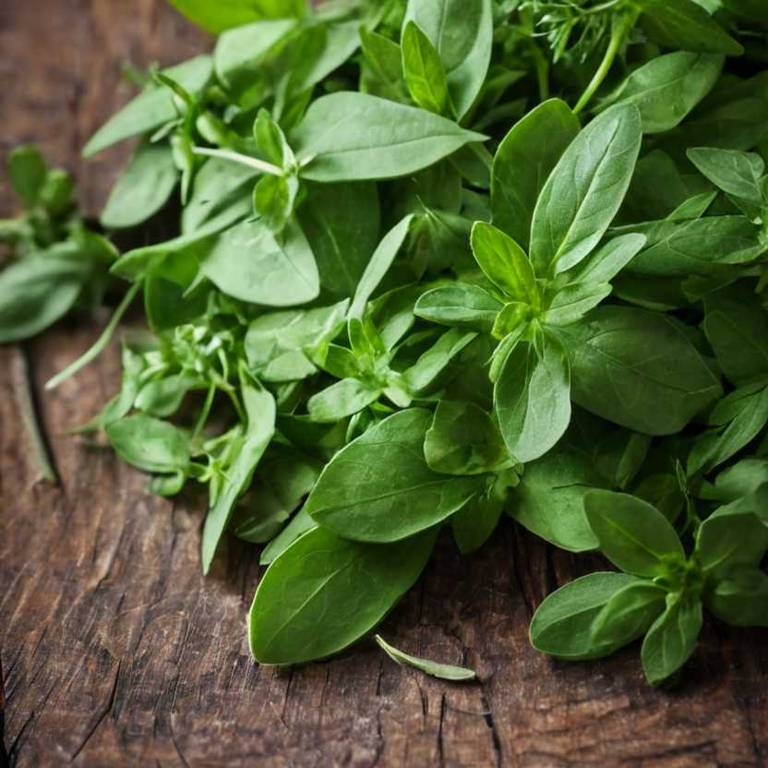Periwinkle (Vinca minor)
Periwinkle (Vinca minor) is a member of the Apocynaceae family, native to Europe, Western Asia, and North Africa. Traditionally, its leaves, roots, and stems have been used for infusions, decoctions, and poultices.
This herb is particularly valued for its sedative, antispasmodic, and tonic actions, and has a long history of use in european herbal medicine, mediterranean herbal traditions, and traditional chinese medicine.

Quick Facts / Key Information
| Common Name | Periwinkle |
|---|---|
| Scientific Name | Vinca minor |
| Plant Family | Apocynaceae |
| Genus | Vinca |
| Species | minor |
| Native Range | Europe, Western Asia, North Africa |
| Plant Parts Used | Leaves, Roots, Stems |
| Primary Medicinal Actions | Sedative, Antispasmodic, Tonic |
| Primary Traditional Systems | European Herbal Medicine, Mediterranean Herbal Traditions, Traditional Chinese Medicine |
| Historical Preparation Methods | Infusion, Decoction, Poultice |
Botanical Identity
- Scientific Name
- Vinca minor
- Common Name
- Periwinkle
- Synonyms / Alternative Names
- Lesser Periwinkle, Vinca Minor, Baby Blue Eyes
- Plant Family
- Apocynaceae
- Genus
- Vinca
Botanical Description
- Growth Habit
- Perennial herbaceous plant.
- Height
- It typically grows to a height of 10 to 30 centimeters.
- Leaves
- Opposite, broad leaves with dark green upper surfaces and lighter green lower surfaces, featuring prominent stomatal bands along the midrib.
- Flowers
- Flowers are blue to violet in color, arranged in clusters, actinomorphic, with five petals and two lobes on the lower lip.
- Stems
- Elongated, erect, herbaceous stems with opposite branching, smooth surface, and nodes bearing adventitious roots.
Traditional Uses / Historical Use
Traditional Systems
- European Herbal Medicine
- Mediterranean Herbal Traditions
Historical Preparation Methods
- Infusion
- Decoction
- Poultice
- Tincture
Medicinal Actions
- Sedative
- Traditionally described as a mild sedative, in nervous system–related contexts.
- Antispasmodic
- In herbal texts, considered a cooling antispasmodic, for cramp-focused discussions.
- Tonic
- Historically regarded as a calming tonic, in general wellness contexts.
- Anti-inflammatory
- Commonly referenced as a gentle anti-inflammatory, in topical or internal use contexts.
Active Compounds
- Alkaloid
- Naturally occurring organic compounds commonly involved in plant defense.
- Flavonoid
- Plant-based polyphenolic compounds frequently distributed throughout aerial plant parts.
- Glycoside
- Naturally occurring metabolites distributed across many plant species.
- Phenolic Acid
- A class of aromatic plant compounds commonly found in leaves, seeds, and stems.
Modern Research Overview
Scientific literature concerning this plant spans multiple areas, including phytochemistry and laboratory research. Detailed analysis of published studies is not included at this time and will be added as part of future editorial expansion.
Safety & Contraindications
- General Precautions
- Caution is advised in certain contexts based on traditional use and available information.
- Contraindications
- The use of this herb has been associated with reported contraindications in some situations.
- Allergies
- There is insufficient evidence to determine whether this herb commonly causes allergic reactions.
- Drug Interactions
- Interactions with prescription medications have not been well documented.
- Toxicity
- Reports indicate that this herb may exhibit toxic properties in some contexts.
- Pregnancy & Breastfeeding
- Use during pregnancy or breastfeeding has not been clearly established in available sources.
Preparation & Usage Methods
- Infusion
- Infusions are commonly prepared using hot water to release aromatic and soluble components.
- Decoction
- Plant parts are gently boiled in water to release soluble constituents.
- Poultice
- A topical preparation made by applying softened plant material externally.
- Tincture
- Tinctures are liquid extracts produced through alcoholic maceration.
- Extract
- Extracts are created by dissolving plant material in a suitable non-alcoholic medium.
Growing, Harvesting & Storage
Growing / Cultivation
- Soil
- Prefers loamy soil with moderately well-drained conditions. Typically grows best in organically rich soils.
- Sunlight
- Thrives in partial shade. Tolerates full sun to partial shade.
- Watering
- Prefers moist soils. Tolerates periodic dry conditions.
Medical Disclaimer
The information provided on this page is for educational and informational purposes only. It is not intended to diagnose, treat, cure, or prevent any medical condition. Always consult a qualified healthcare professional before using any herb for medicinal purposes.